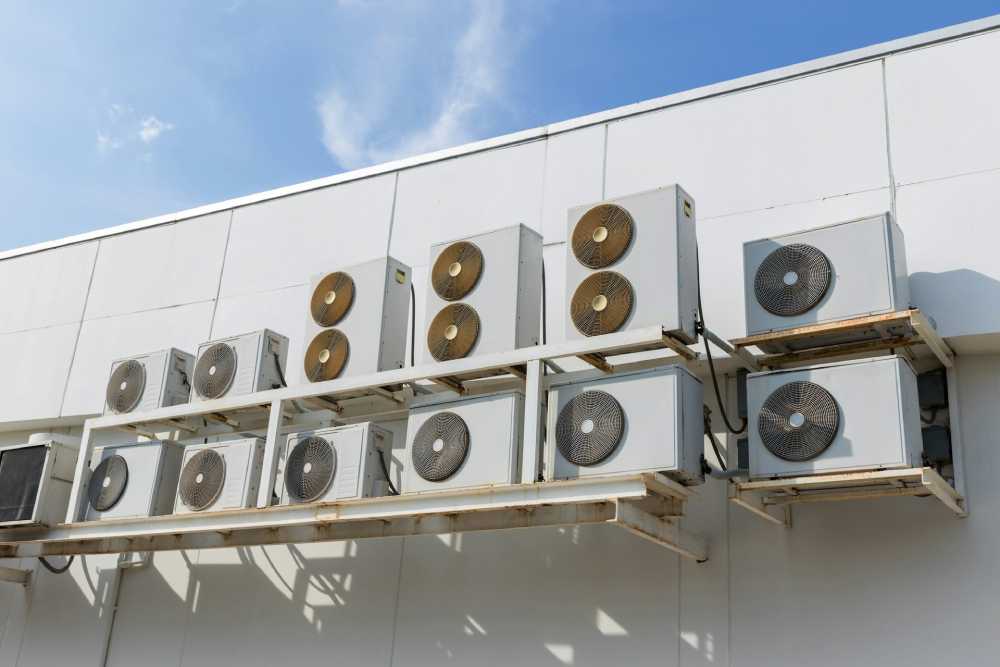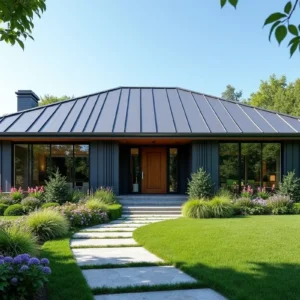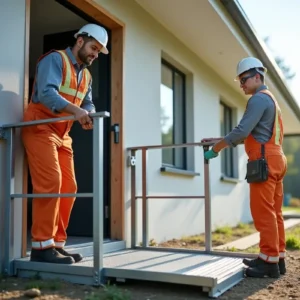Commercial buildings require HVAC (heating, ventilation, and air conditioning) systems to ensure occupant comfort. These systems can typically be mounted on a rooftop or on the ground. Installing a rooftop HVAC system is a strong alternative since it has several benefits over ground systems.
Because rooftop installations have so many advantages over other types of installations, they are becoming a popular option for contemporary commercial buildings. These systems offer numerous valuable advantages that we shall discuss in this post, in addition to helping to maximize the available space.
Contents
Space-Saving Benefits
One of the primary advantages of rooftop HVAC systems is the effective utilization of space. By installing the system on the roof, you free up valuable ground space that can be used for parking, landscaping, or additional structures. This is particularly advantageous in urban areas where ground space is limited.
For businesses in crowded city centers, every square foot of ground space is precious, and a rooftop HVAC system helps make the most of the available real estate. In addition to saving space, the rooftop HVAC installation also allows for a cleaner aesthetic look at the ground level.
No more bulky units taking up necessary areas that might be better suited for customer interactions or business operations. This approach enables a more organized and visually pleasing layout for the premises, ensuring that functionality and appearance are optimized.
Enhanced Security
Rooftop installations offer increased security compared to ground systems. Ground units are more vulnerable to theft and vandalism, especially in high-crime areas. You can significantly reduce these risks by placing the HVAC system on the rooftop. Security is a significant concern for many business owners, and the elevated placement of the HVAC system makes it less accessible to unauthorized individuals.
In addition, rooftop units are less exposed to accidental damages caused by vehicles or equipment, further ensuring the longevity and reliability of the HVAC system. By mitigating these risks, companies can save on potential repair costs and ensure consistent operation.
Easier Maintenance
Rooftop units are generally easier to access for routine maintenance and repairs. Technicians can quickly reach the units without disrupting the business’s daily operations, resulting in fewer interruptions and a safer environment for technicians and employees. The isolated location of rooftop units also means that maintenance work is less likely to interfere with business activities on the ground floor.
Moreover, having the units on the roof can provide better working conditions for the technicians, as there is less clutter and more open space to carry out their tasks efficiently. Regular and efficient maintenance can prolong the HVAC system’s life and help maintain the desired indoor climate without unexpected breakdowns.
Better Air Quality
Air quality is a crucial component of a comfortable indoor environment. Rooftop HVAC systems can provide better air quality by reducing the intake of dust, debris, and other more prevalent pollutants at ground level. Read this EPA guide on indoor air quality for more insights on how air quality impacts health and productivity.
Clean air translates to a healthier work environment, which is essential for the well-being of employees and clients alike. Reducing contaminants entering the system can also mean less frequent filter changes and a more efficient operation over time. This advantage becomes even more significant in areas with high street or industrial activity, where ground-level air can be considerably polluted.
Air Quality and Health
Employees who work in clean air are less likely to experience respiratory problems and skin irritations, which decreases sick days and increases productivity. Because of this, rooftop systems benefit both corporate operations and health. Better air quality tends to make workers happier and more engaged, creating a more productive work environment.
Companies may see increased absenteeism and low staff morale in environments where air quality is affected. Businesses may show their dedication to the health and safety of their workers by installing a rooftop HVAC system, which will increase employee satisfaction and retention.
Environmental Benefits
Rooftop systems are often more efficient, leading to reduced energy consumption and lower greenhouse gas emissions. Their efficiency can contribute to achieving sustainability goals and lowering operational costs. According to Energy.gov, efficient HVAC systems can significantly reduce energy bills, a boon for businesses and the environment.
Many firms are searching for methods to lower their carbon footprint as environmental worries grow. Energy efficiency is often a primary priority in the design of rooftop HVAC systems, which helps businesses reach their sustainability goals. Modern systems also use innovative technologies to maximize efficiency and lower energy usage.
Additionally, by showcasing their efforts to be environmentally sensitive, businesses can improve their standing with the public, draw in eco-aware customers, and even be eligible for government subsidies or specialized sustainability certifications.
Noise Reduction
Ground units can produce significant noise, which may disturb occupants and neighbors. Rooftop systems, on the other hand, are farther from earshot, reducing noise pollution. This can contribute to a more peaceful and productive work environment. For companies operating in noise-sensitive industries, such as healthcare or education, the noise reduction offered by rooftop systems can be particularly beneficial.
Furthermore, a quieter HVAC system can enhance the overall ambiance of the workplace, making it more enjoyable for employees and clients. Noise pollution increases stress levels and hinders concentration, so minimizing it can lead to a more comfortable and productive workspace.
Flexibility in Design
Lastly, rooftop HVAC systems offer greater flexibility in building design and layout. You can customize the system to fit your needs without being confined by ground-level limitations. This flexibility can be essential in retrofitting older buildings or designing new commercial spaces. Architects and builders appreciate the ability to integrate HVAC systems seamlessly into the overall building design.
This allows for more innovative and efficient use of space, which can be essential when dealing with unique architectural constraints or aesthetic considerations. Rooftop installations also allow for optimizing the placement of various components to achieve the best performance and energy efficiency.
Conclusion
In conclusion, rooftop HVAC systems offer numerous and significant advantages over ground systems. From saving valuable ground space to offering better security, easier maintenance, improved air quality, environmental benefits, noise reduction, and design flexibility, it’s clear why many businesses prefer rooftop installations.
By investing in a rooftop HVAC installation, companies can enhance their operational efficiency, contribute to a healthier environment, and create a more pleasant and productive workspace.





